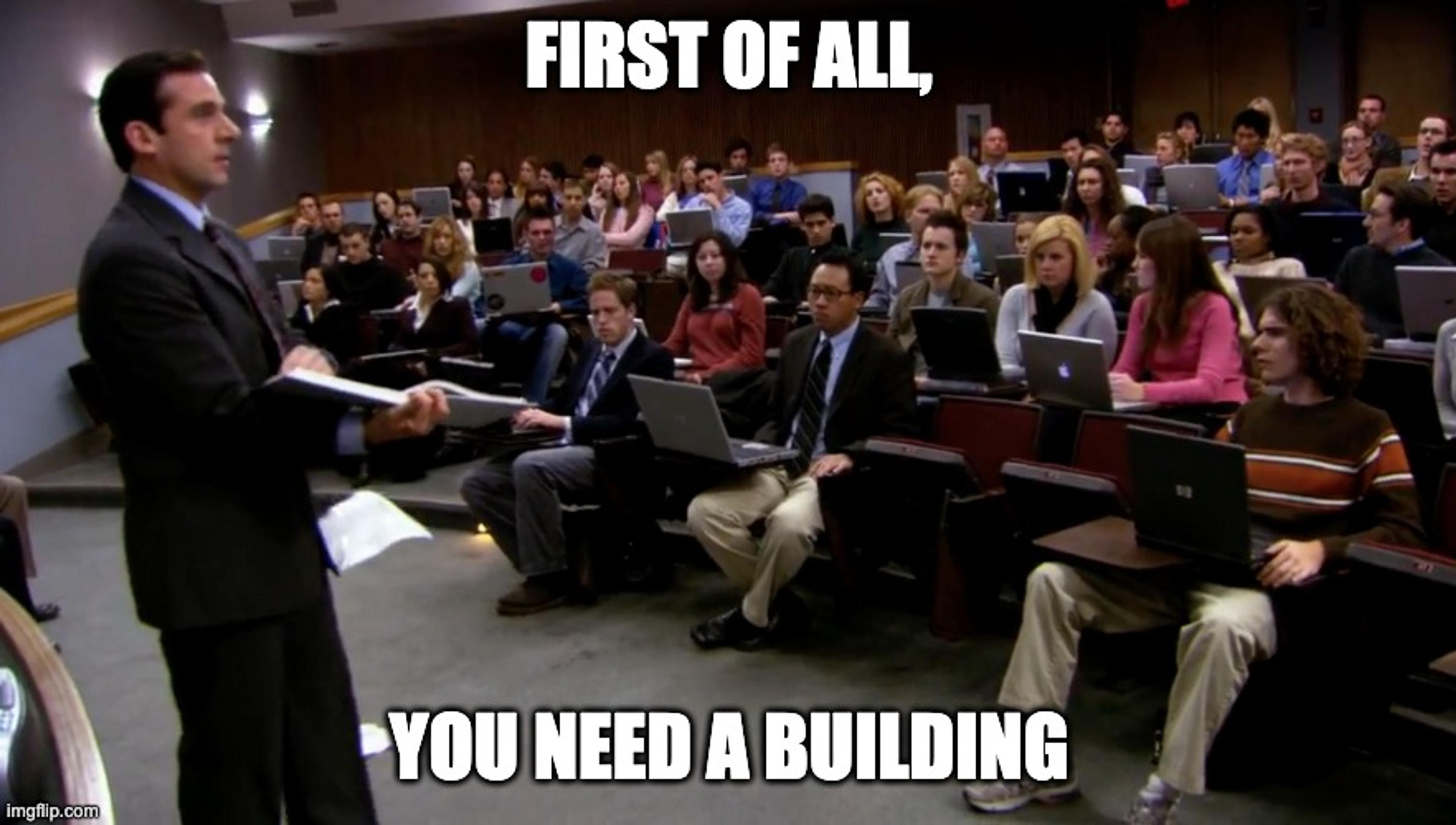In something that will surprise absolutely no one, 2020 is the year we updated the way we think about remote work at Mux.
Mux was founded in San Francisco, and our first full-time team was fully colocated in SF. We did this intentionally, because we know how valuable in-person communication is for a small team. As we grew, we opened a London office, and hired a handful of remote employees, but stayed SF-centered.
In 2020, we became a much more remote-friendly company. This happened for two reasons.
Obviously, the pandemic forced us to move to a 100% work-from-home model for an extended period of time.
But we also made a strategic decision to embrace a Remote-Equal approach, where employees who work from our SF headquarters, from remote offices, and from home are on a level playing field.

What is Remote-Equal?
A remote-equal policy means that employees working in a core office aren't privileged over employees working from smaller offices or from home.
Every remote policy is on a spectrum. Sid from Gitlab, one of the exemplars of full remote work today, recently tweeted a 10-point scale ranging from "no remote" (1) to "strict remote" (9). Gitlab is a 9 on the scale.
What we're calling "remote-equal" is a 6.5 or 7. We're intentionally somewhere between "Hybrid Remote" (5) and "All Remote" (9).
On the one hand, we didn't choose to go Remote Only (8), because we still think that offices are useful tools, and we didn't choose to go All Remote (9), because we still value some synchronous work (as well as asynchronous work).
On the other hand, we considered Hybrid Remote, but think that's actually the option that captures all of the disadvantages of the extremes with few of the advantages.
- As Sid says, leaders have to manage "two fundamentally distinct ways of working". In other words, Hybrid Remote is like stapling together two conflicting approaches, rather than creating a single coherent approach.
- Employees at HQ end up being privileged over remote employees in both obvious and subtle ways, like better A/V in meetings, better team events, and the like. This leads to inequity and hurts team functioning. The conventional wisdom is that "You can't get promoted over Zoom," and that there is a significant advantage to being at HQ. We want to avoid that.
The Policy
Here is the policy, extracted from our internal company handbook.
- Remote and non-remote employees are equal. Everyone is remote to someone else, so let's be intentional about how we work across locations. Don't disadvantage someone because they don't work out of the San Francisco office. Remote work is how we work.
- Hire great people, wherever they are. Managers should decide what hours and locations are appropriate for a position.
- Synchronous work still matters. While we are generally flexible on work hours, teams should have agreed upon core hours, and team members should be able to work those hours. Additionally, everyone should be able to join occasional all-company meetings, which might mean employees in non-US time zones may need to join some meetings early or late.
Note: this means we aren't perfectly "equal." This is a limitation and caveat on our "remote-equal" policy. While we strive for every employee to be on an equal playing field, regardless of location, we still hold some synchronous team meetings that are centered around Pacific Time. - In-person relationships are important (when safe). Every employee should spend in-person time with their core team and manager at least 2-4 times per year, and should visit San Francisco at least once a year. Certain positions might require travel to another office up to once a month.
- Employees can relocate if the role allows for it. Work with your manager to understand if this is possible. Relocation may come with a salary adjustment based on the market salary differences between the old and new location.
Why a Remote-Equal policy?
We chose this approach for a number of reasons.
We can't all be in SF. We're a global company, which means remote teams will always be a part of Mux. We need people on the ground in key markets, starting with London and expanding from there.
Access new talent markets. San Francisco is a highly competitive market for talent, and there are good people all over the world. We've hired dozens of excellent people in SF, but as we grow, we'll be able to build a better team overall by opening ourselves up to other locations.
Remote hiring helps with diversity & inclusion. By widening the pool of talent we can draw from, we can make sure that we're making progress on D&I and living our values.
Learning how to work remotely makes us all better. Much of the work we need to do to scale to 150 people is the same work that we need to do to be remote-equal. This includes things like more intentional communication, documenting, improving collaboration and onboarding, and investing in systems and processes over individual heroics. Aiming at being remote-equal will help us be better across the board.
If we're going to have anyone remote, we should do it well. Policies that are less remote-friendly than "Remote-Equal" make work difficult for people who are remote. We believe that if we are going to hire someone, we should set them up for success, which means we should either avoid remote team members or else be Remote-Equal.
In practice
In order to do this well, we're going to do some things differently.
Write things down. This is important anywhere, especially in growing companies. When you're small, everything is in the team's head, but that doesn't scale. But writing this down is doubly important when people aren't working together in the same office.
WFH days. Today, everyone is WFH while we deal with the COVID pandemic. Even after we get back to the office, we will continue with 2 all-company WFH days every week. This will help level the playing field for office-based and remote employees.
Face-time (when safe). Even as we hire more remote people, we still want to get together as a team. We expect everyone to have face-time with their teams and manager at least a few times a year. In-person relationships are valuable.
Meetings. Try to avoid meetings where some employees are in a conference room and others are on a screen. This disadvantages the employees on a screen.
Location concentrations still matter. We believe a strong SF presence is important for a number of reasons, like proximity to customers, investors, and talent. Similarly, a strong London presence is important for the European market, and we will likely have more concentrations over time. Remote-equal doesn't mean that we're fully location-agnostic.
Work on asynchronous decision-making. Even though we're choosing to prioritize some level of synchronous communication, getting better at async work is only a good thing. We're working on identifying the patterns, tools, and processes that will help us doing this well. (More on that in another post, maybe.)
Hiring remote
This means most positions at Mux are now open for remote hiring. Check out https://mux.com/jobs/ if you're interested in learning more!



